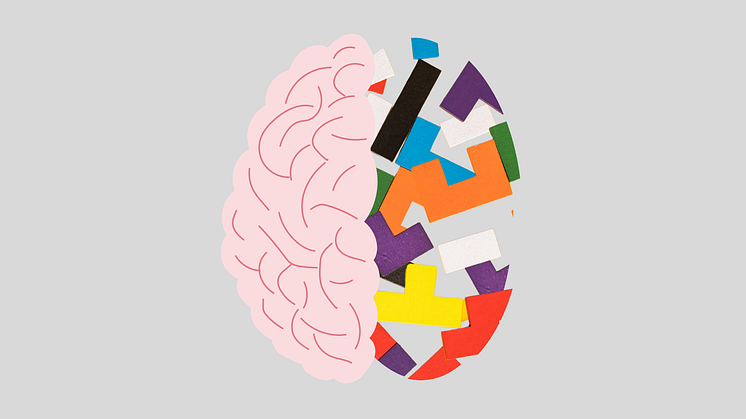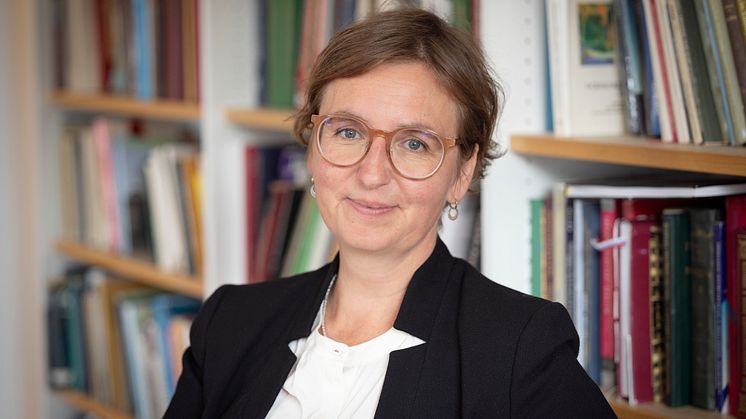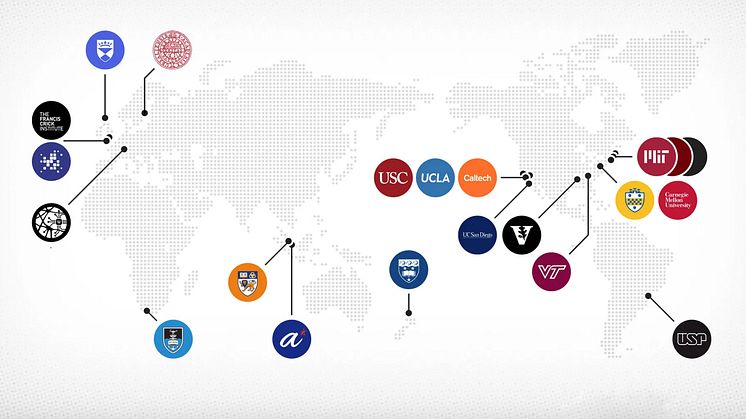
Press release -
PTSD symptoms can be reduced through treatment including a video game
A single treatment session, which includes the video game Tetris, can reduce symptoms of post-traumatic stress disorder (PTSD). This has been shown in a new study carried out with healthcare professionals working during the COVID-19 pandemic. The study is led by researchers at Uppsala University and is published in BMC Medicine.
“It is possible to reduce the frequence of unpleasant and intrusive memories of trauma, and thereby also alleviate other PTSD symptoms. With just one guided treatment session, we saw positive effects that persisted after five weeks and even six months after treatment. Trauma can affect anyone. If this effect can be achieved with an everyday tool that includes video gaming, it could be an accessible way to help many people,” explains Emily Holmes, Professor at Uppsala University who led the study.
The hallmark symptom of PTSD is unpleasant and intrusive memories of a traumatic event in the form of mental images – typically known as flashbacks. Other symptoms may include avoidance, excessive tension and problems such as difficulty sleeping and concentrating. Holmes and her colleagues have been researching how to prevent PTSD for a long time. In the current study, the researchers focused on getting rid of flashbacks. By replacing intrusive memories using a visual task, other PTSD symptoms can also be reduced.
Mental rotation using Tetris
The treatment is based on what is known as mental rotation, which lies at the heart of Tetris. When you look at an object from one angle, you can imagine what it would look like if it were rotated to a different position and could be seen from a different angle.
The study involved 164 participants (see fact box). All participants monitored their intrusive memories of trauma for a week. After that they were randomised to one of two conditions. Half the group were asked to play Tetris with mental rotation. The other half, the control group, was given a non-visual task: listening to the radio. All participants kept a diary about their flashbacks. At the start of the study, participants were experiencing an average of 15 flashbacks a week. At a five-week follow-up, participants in the control group had an average of five episodes a week, but those in the gaming group had an average of just one.
At a follow-up six months after treatment, participants in the gamling group had less severe symptoms of PTSD. In an assessment using a recognised questionnaire (PCL-5) often used to assess all PTSD symptoms, the gaming group experienced around half as many as problems as the control group.
“It was surprising to us that the treatment method was so effective and that the improvement in symptoms lasted for six months. I realise that it may seem unlikely that such a short intervention, which includes video games but doesn’t include an in-depth discussion of trauma with a therapist, could help. But the study provides scientifically controlled evidence that a single guided digital treatment session can reduce the number of intrusive memories, and that it can be used safely by participants,” she continues.
“Cognitive vaccination”
“My vision is that one day we will be able to provide a tool for people such as healthcare professionals after traumatic events to help prevent and treat early PTSD symptoms,that is a 'cognitive vaccine', in a similar way that we currently vaccinate against some infectious physical diseases” explains Holmes.
The research was conducted in collaboration with colleagues at Uppsala Clinical Research and Karolinska Trials Alliance, Karolinska Institutet, Karolinska University Hospital, Dalarna University, Sophiahemmet University, Ambulance Services in Region Västerbotten, the University of Münster (Germany), P1Vital (UK) and the University of New South Wales, UNSW (Australia).
Article: Kanstrup, M., Singh, L., Leehr, E.J. et al. A guided single session intervention to reduce intrusive memories of work-related trauma: a randomised controlled trial with healthcare workers in the COVID-19 pandemic. BMC Med 22, 403 (2024). https://doi.org/10.1186/s12916-024-03569-8
The study was funded by the Swedish Research Council and AFA Insurance.
For further information:
Emily Holmes, Professor at the Department of Women's and Children's Health, Uppsala University, email: emily.holmes@uu.se, tel.: +46 18 471 54 74, https://emilyholmes.net/
Facts about the study:
The study was carried out with healthcare workers in Sweden who worked with COVID-19 patients and were exposed to work-related trauma. It was conducted during the COVID-19 pandemic between September 2020 and April 2022. A total of 164 participants were included. Participants were recruited through information at workplaces. Participation was entirely voluntary. The criterion for participation was that the person had at least two intrusive memories per week due to traumatic events that occurred at work.
The study was conducted entirely remotely. The participants completed the tasks on a smartphone or computer, and a facilitator was present by phone or video call during the one guided treatment session. The treatment took approximately 35 minutes to complete. During that time, participants were informed about what intrusive memories are. They had to describe their memories in just a few words, but not describe their trauma in detail. After that, they were briefly informed about what the concept of mental rotation means and entails, and played Tetris for 20 minutes using mental rotation. The control group listened to a radio programme for 20 minutes. It was a blinded study, which means that participants did not know whether they were in the treatment group or the control group.
Previous results from the study: Ahmed Pihlgren S, Johansson L, Holmes EA, Kanstrup M. Exploring healthcare workers' experiences of a simple intervention to reduce their intrusive memories of psychological trauma: an interpretative phenomenological analysis. Eur J Psychotraumatol. 2024;15(1): 2328956. doi: 10.1080/20008066.2024.2328956
More about Emily Holmes’ research:
- Royal Swedish Academy of Sciences’ Expert Group on COVID-19, Interim Report 5 (2021): Beteende och psykisk hälsa ett år in i Covid-19-pandemin – insikter från beteendevetenskap. (Behaviour and mental health one year into the COVID-19 pandemic -– insights from behavioural science.) https://www.kva.se/app/uploads/2021/06/covidrapport5210609beteenden.pdf
- PERCEPT – Mental Imagery and Mental Health, www.uu.se/percept
Related links
Topics
Categories
Founded in 1477, Uppsala University is the oldest university in Sweden. With more than 50,000 students and 7,500 employees in Uppsala and Visby, we are a broad university with research in social sciences, humanities, technology, natural sciences, medicine and pharmacology. Our mission is to conduct education and research of the highest quality and relevance to society on a long-term basis. Uppsala University is regularly ranked among the world’s top universities. www.uu.se


